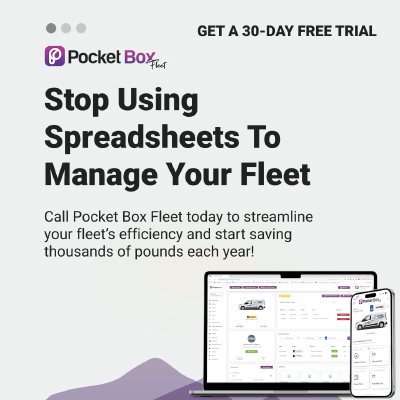The UK fleet management industry is at a crucial juncture, shaped by technological advancements, regulatory changes, and shifting market demands. As businesses across the country strive to optimize their transportation operations, fleet management is becoming increasingly complex, requiring a strategic approach that balances efficiency, sustainability, and cost-effectiveness.
1. The Current Landscape of Fleet Management in the UK
Fleet management in the UK is a dynamic sector, with a diverse range of companies managing everything from small local fleets to large national and international operations. The industry has seen significant growth in recent years, driven by the rise in e-commerce, the need for efficient supply chain management, and the growing importance of sustainability.
However, this growth comes with its challenges. Rising fuel costs, stringent environmental regulations, and the need for advanced telematics and data analytics systems are just a few of the issues that fleet managers must navigate. Additionally, the post-Brexit landscape has introduced new complexities, such as changes in import/export regulations and potential labour shortages.
2. The Role of Technology in Fleet Management
Technology is at the forefront of modern fleet management, providing tools that enhance efficiency, safety, and cost control. Telematics systems, for example, have become essential in monitoring vehicle performance, driver behaviour, and fuel consumption. These systems provide real-time data that can be used to optimize routes, reduce idle times, and improve overall fleet efficiency.
Advertisement
Artificial intelligence (AI) and machine learning are also playing a growing role in fleet management. These technologies can predict maintenance needs, forecast fuel usage, and even assist in route planning by analysing traffic patterns and weather conditions. The adoption of AI-driven platforms, like those offered by companies such as Gaadin, is helping fleet managers make more informed decisions and improve operational efficiency.
3. Gaadin’s EV Charging Management Software: A Game-Changer for Fleet Managers
As the UK fleet industry shifts towards more sustainable practices, electric vehicles (EVs) are becoming an integral part of fleet operations. Managing an EV fleet, however, presents unique challenges, particularly around charging infrastructure, vehicle range, and energy costs. This is where Gaadin’s EV Charging Management Software comes into play.
Gaadin’s platform offers a comprehensive solution for managing EV fleets, integrating seamlessly with existing fleet management systems. Some of the key features include:
- Real-Time Charging Monitoring: Gaadin’s software provides real-time updates on the charging status of all fleet vehicles. Fleet managers can monitor energy consumption, track charging sessions, and receive notifications when vehicles are fully charged or if there are issues during the charging process.
- Smart Charging Scheduling: The software allows fleet managers to schedule charging sessions based on operational needs, ensuring that vehicles are ready when needed. This feature also optimizes energy costs by scheduling charges during off-peak hours, reducing electricity expenses.
- Route Optimization for EVs: Gaadin’s platform uses advanced algorithms to plan the most efficient routes for EVs, taking into account charging station locations, vehicle range, and traffic conditions. This ensures that drivers can complete their routes without the risk of running out of charge.
- Data Analytics and Reporting: The software provides detailed reports on charging sessions, energy consumption, and overall fleet performance. These insights enable fleet managers to make data-driven decisions, improve efficiency, and reduce operational costs.
By integrating Gaadin’s EV Charging Management Software into their operations, fleet managers can overcome the challenges associated with managing an EV fleet, ensuring that their vehicles are always ready for the road while optimizing costs and reducing their carbon footprint.
4. The Shift Towards Sustainability
Sustainability is a key concern for fleet managers in the UK, driven by both regulatory pressures and consumer demand. The UK government has set ambitious targets for reducing carbon emissions, with the aim of reaching net-zero by 2050. This has led to increased scrutiny of fleet emissions, particularly in urban areas where low emission zones (LEZ) and clean air zones (CAZ) are becoming more common.
To meet these challenges, many fleet operators are investing in electric vehicles and hybrid vehicles. The adoption of EVs is supported by government incentives and an expanding charging infrastructure. However, transitioning to an electric fleet requires careful planning, including considerations around charging logistics, total cost of ownership, and vehicle range. Solutions like Gaadin’s EV Charging Management Software are vital in this transition, offering the tools necessary to manage and optimize EV operations effectively.
5. Regulatory Considerations
The regulatory environment for fleet management in the UK is becoming increasingly complex. Compliance with the Driver and Vehicle Standards Agency (DVSA) regulations, including those related to driver hours and vehicle maintenance, is essential. Additionally, fleet managers must navigate the implications of the UK’s exit from the EU, which has resulted in new customs procedures and potential changes in labour availability.
Health and safety regulations are also a critical concern, particularly with the increasing focus on driver well-being. Fleet operators must ensure that their vehicles are regularly inspected, that drivers are properly trained, and that all safety protocols are followed to mitigate risks and avoid costly penalties.
Advertisement
6. The Importance of Data-Driven Decision Making
In today’s fleet management landscape, data is king. The ability to collect, analyse, and act on data is crucial for optimizing fleet operations. Data analytics can provide insights into vehicle performance, fuel efficiency, and maintenance needs, allowing fleet managers to make proactive decisions that reduce downtime and extend the life of their vehicles.
Moreover, data-driven decision-making supports compliance with regulatory requirements and helps to identify areas for improvement in driver behaviour, route planning, and overall fleet performance. The integration of data analytics with fleet management software offers a comprehensive view of fleet operations, enabling better strategic planning and more efficient resource allocation.
Gaadin’s software enhances this capability by offering detailed analytics on EV charging, providing insights into energy usage, charging patterns, and cost-saving opportunities. This level of data-driven insight is essential for fleet managers looking to optimize the performance and sustainability of their EV fleets.
7. Future Trends and Opportunities
The future of fleet management in the UK is likely to be shaped by several key trends. The continued adoption of electric vehicles, the integration of advanced telematics and AI, and the increasing importance of sustainability will all play a significant role in the evolution of the industry.
Additionally, the rise of autonomous vehicles, while still in its early stages, presents a potential game-changer for fleet management. Autonomous technology could reduce labour costs, improve safety, and further enhance operational efficiency. However, widespread adoption is still years away, and fleet managers must carefully consider the implications of this technology on their operations.



















